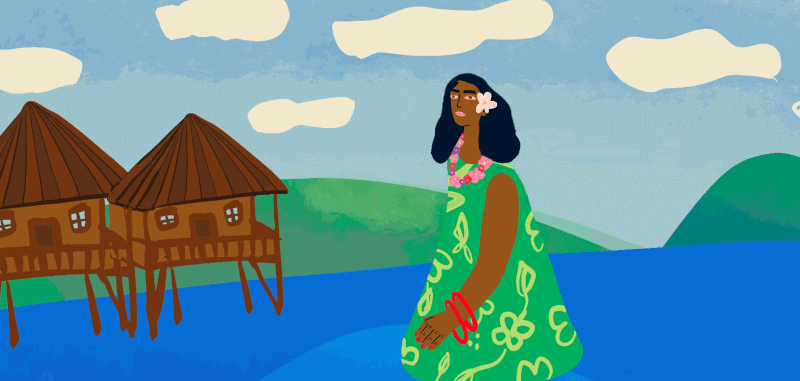The 66th Session of the UN Commission on the Status of Women is now underway. This is the UN’s principal intergovernmental body for promoting gender equality and women’s empowerment. This year the focus will be on the interconnection between climate change and gender justice, and ACT Alliance is working with our members to be a collective prophetic voice for justice. In preparation, ACT Members have been working together in strategy sessions, where ACT Alliance’s delegates exchanged views on the work they are doing at a national and the regional level, sharing how to advance understanding of the impacts of the climate crisis on women and girls in communities around the world.
Patricia Mungcal, of the National Council of Churches in the Philippines and co-chair of ACT’s Youth CoP, shared some alarming insights. “Young women and girls in disaster-stricken areas are more prone to gender-based violence,” she said. “Without policies based on mutual agreement, mutual respect, and recognition of territorial and patrimonial rights, the climate crisis will only exacerbate an ongoing economic crisis that endangers the lives of all people. Climate and gender justice are not stand-alone issues but are both centered around civil and economic justice.”
Joel Kelling of theAnglican Alliance, based in Jordan, and a member of the MENA Climate Justice Community of Practice raised a key issue shared by other participants. “How do we engage people in the severity of the situation when we don’t typically have rapid onset natural disasters here?” he said. “The city of Alexandria in Egypt might be under water in 50 years, and yet there is a distinct lack of immediate and urgent action in response.” Financial support is crucial and must be channeled towards communities, he said. The good news is that there are churches in the Middle East that are beginning to provide more support for climate and gender justice.
Sostina Takure, who is the coordinator of the ACT Zimbabwe Forum highlighted how changes in climate patterns are affecting rural women and girls and food security in communities. Zimbabwe, like many other countries, relies heavily on agriculture to support their economy. “Recently there has been a mixture of natural weather phenomenon, and also politics, that have contributed to our economy dying,” she said. The region has experienced extreme droughts and devastating cyclones which affect communities’ livelihoods.
Human rights abuses, specifically abuses against women and children, have increased due to economic and political insecurity. Women still cannot own land in Zimbabwe and access to education is limited. Rural women have little access to information and are often not included in decision-making and knowledge sharing activities. Although women living in urban areas may be more educated, they are still being excluded from conversations about climate justice and climate solutions.
Zoyara Urbina of LWF and the LAC Gender Equality Community of Practice spoke about how the most impoverished countries are struggling to cope with a climate that is changing too quickly for them to adapt to or mitigate the effects. The region is known for its biodiversity, yet Central American countries are already showing the negative effects of climate change. As in other parts of the world, rural communities are affected the most and this is now part of the daily lives of millions of people.
ACT Alliance is advocating at the UN Commission on the Status of Women in many ways. We are coordinating Side and Parallel Events, lifting up the voices of national and regional members on the frontline of the climate crisis. We are also working as a delegation to strategically reach out and influence the Member States. Working with sister and ecuemnical agencies, we are hosting a virtual exhibition booth at CSW66, which is a space to connect and raise awareness of the role faith-based actors are playingat regional, national and local levels, to achieve gender and climate justice.
Central to our participation in this space is to highlight the voices of those living in communities affected by the climate crisis. Delegates are sharing stories, information, tools and solutions to advance gender and climate justice.
You can visit our exhibition booth here, which also includes a programme of events.
To learn more about what ACT is doing at CSW66 check out our dedicated page: www.actalliance.org/csw
To add your voice, tweet your insights on gender and climate issues by using the hashtags #TheRoad2Equality and #CSW66
